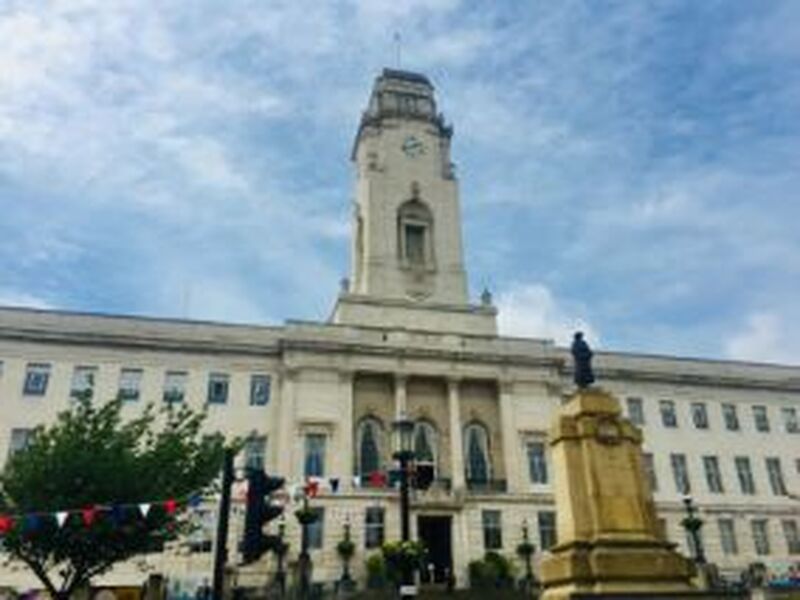TEENAGERS who are placed in non-regulated care homes will only be housed there when all other options have been exhausted according to Barnsley Council - after it was revealed that more than 50 youngsters were living in now-banned accommodation last year.
Unregulated care homes - which are not subject to the same mandatory inspections as regulated alternatives - were required to register with Ofsted from October last year.
It is now an offence under the Care Standards Act 2000 to operate a children’s home without a official registration, which the watchdog says prevents unsuitable people from owning, managing or working in homes.
The illegal care system has expanded in recent years as local authorities have struggled to accommodate increasing numbers of vulnerable children, who pose a risk to themselves or others, or are being criminally or sexually exploited.
However, a Freedom of Information request revealed that despite the government-enforced ‘ban’, due to a lack of places many local authorities - including Barnsley’s - are relying on unregulated settings to house 16 and 17-year-old youngsters.
A dozen in-care Barnsley teens were placed in such homes in 2019, which dropped to six in 2020 before climbing to 23 in 2021 and 26 in 2022.
By 2023, that figure had almost doubled to 51, the data revealed.
Coun Trevor Cave, cabinet member for children’s services at Barnsley Council, said delays had been encountered in the Ofsted registration process.
“Barnsley is experiencing the same pressure on placement sufficiency as the rest of the local authorities in the UK,” he said.
“We are bucking the national trend by reducing the numbers of children in our care through improved social work interventions in pre-care proceedings and better permanence planning for children outside of the care system, which has eased these pressures slightly.
“There are now only four looked-after young people from Barnsley in unregistered placements as of last Thursday.
“The significant increase from 2022 to 2023 occurred due to a change in legislation last October, which put an end to unregulated semi-independent 16-plus provision and introduced mandatory Ofsted registration for providers.
“Due to the volume of applications nationwide, providers have experienced delays in the registration process of up to 18 months which has impacted two of our young people in unregistered placements.
“We have developed strong relationships with our preferred 16-plus accommodation providers in the borough and have first refusal when places become available, allowing us to transition young people into registered placements at the earliest opportunity.”
Under the new regulations, providers will also be required to complete a review of the support they are offering young people every six months.
This review will have to include the views and experiences of the children and young people living in the accommodation and will be used to make sure the accommodation meets the needs of everyone who lives there.
Reviews will be submitted to Ofsted, which will inspect accommodation at least every three years.
“This is not always a straight-forward process, as placing a young person with a registered provider can sometimes mean they have to move outside of Barnsley, which can impact on relationships with family and friends, and their education,” Coun Cave added.
“During a young person’s placement in an unregistered home, we increase the frequency of social worker visits from every six weeks to every week.
“We also have increased oversight from the independent reviewing officer and the commissioning service who visit the home to undertake a quality assurance audit of its administrative processes.
“Each unregistered placement is notified to Ofsted, while our service director and head of service review each placement weekly for as long as the young person remains in that placement.
“We will only place young people in unregistered placements when all registered options have been exhausted.”
Rachel de Souza, Children’s Commissioner for England, said a third of youngsters in unregulated accommodated are unaccompanied asylum-seeking children.
She added: “Some children in care, particularly older teens who are particularly vulnerable, are not placed with foster carers or in a children’s home - they end up in what is known as ‘unregulated accommodation’.
“This is independent or semi-independent accommodation with limited support and is not regulated by the quality inspectorate.
“What is common to all types of unregulated accommodation is that the vulnerable children placed there are not entitled to ‘care’, where children are closely supervised around the clock, but to ‘support’.
“Support might mean a check in with staff to discuss education or employment opportunities, and limited help with practical things including money management.
“This effectively means that children supposedly in care are being left to fend for themselves, with very limited support from keyworkers - perhaps five hours or so each week, or less.”

























